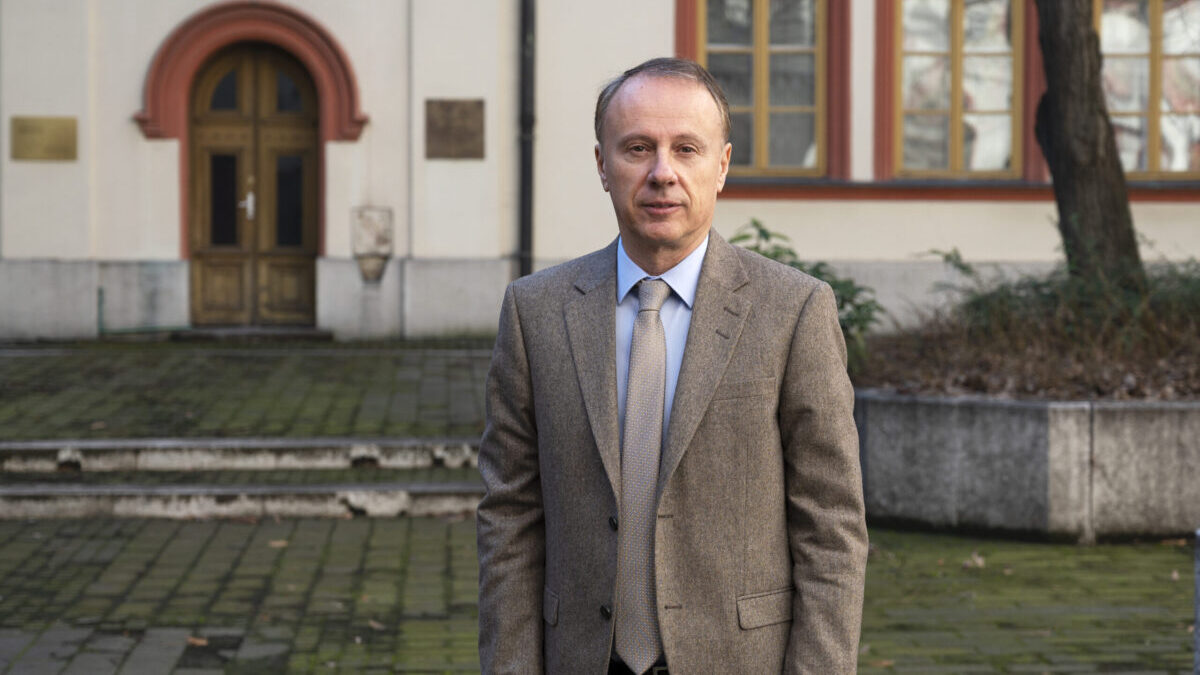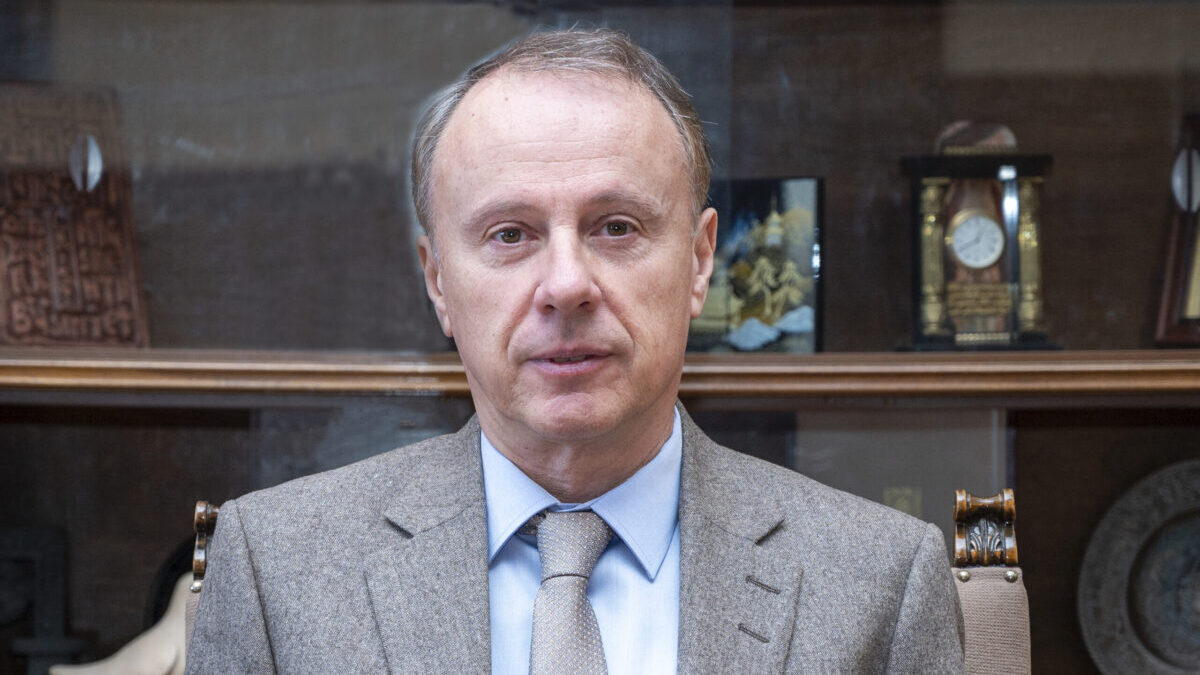The strength of the University of Belgrade lies in the diversity and distinctiveness of its members, each of them contributing to the University’s affirmation in their own specific way.
Establishing the framework for monitoring and evaluation of quality following the 2030 Education Development Strategy is a prerequisite for continuous and systematic monitoring and evaluation of the quality of education, as well as for creating purposeful educational policies based on accurate and up-to-date data. Continuous quality monitoring would contribute to a greater degree of transparency and integrity.

After spending a semester as the University of Belgrade’s rector, how would you rate the current situation at the largest university in Serbia? ?
The University of Belgrade is the most important academic institution in our country and the region, and as such, provides a particularly attractive environment for the development, advancement and actualization of several professions. It consists of 31 faculties and 11 institutes that boost their reputation and importance in various ways.
The University of Belgrade’s vision is to continuously improve its reputation as a leading regional educational and research institution, attracting more students, advancing and innovating its curriculum, thus reforming its system of work to further promote its place in the ranking of universities in the region and the world in terms of quality of teaching and educational staff. Also, the University strives to strengthening scientific-research and professional-artistic capacities of teaching and scientific-research staff, while adhering to development principles defined in national strategies and regulatory frameworks, and relying on development directions established within current European agendas.
What changes have taken place since the beginning of your term?
Exactly four months have passed since I was appointed rector, which is a short period for certain changes to be implemented. I would like to mention particular initiatives that have been launched to improve the University’s functioning.
An initiative has been launched to establish postdoctoral research positions at the University, which would help keep young people in the country, facilitate the return our scientists who have earned their doctorates abroad and attract foreign researchers. An Environmental Protection Committee has been established too, which will make proposals related to environmental protection, as well as carry out activities and procedures that would contribute to that. A Memorandum of Understanding was signed with Padjadjaran University of Sumedang, Indonesia, stipulating cooperation on business and innovation incubators, which enables the development of institutional partnership.
The Institute of Physics and the Faculty of Mechanical Engineering have signed a cooperation agreement to maximize the use of various intellectual potentials and infrastructural resources among the members. An initiative has been launched aimed at correcting and harmonizing university regulations and acts that are incomplete in some parts, to have a more efficient and rational work organization at the University.
The pandemic has greatly changed the education format. How did that affect the quality of education and acquired knowledge?
The University has been implementing its curriculum for the third school year while having to adapt to the pandemic. This mass and unprepared use of technology has revealed numerous advantages, but also problems, especially from the aspect of underdeveloped infrastructure and digital readiness for the transition to this type of teaching. Although the University coped very well in the new circumstances, it is evident that not all members of the University, as well as all students, were equally ready for this situation.
I would like to highlight that the results of the exams and the pass rates from the last school year, which took place via a combined teaching model and that did not differ much from previous years. On the back of that, we can conclude that the quality of education and acquired knowledge is not jeopardized. What scares me is the social moment, that is, a level of alienation among students who are deprived of a lively interactive academic atmosphere while studying in this way.

How could this format of education affect the readiness to include new generations in the work system?
The current development of higher education is facing a number of challenges. The demand for highly qualified, socially engaged professionals is increasing and changing in line with numerous global challenges. These challenges include social transformation, globalization, environmental threats and increasing pressure on public services, the health system, infrastructure and housing, as well as the development of information technology. Such circumstances require future experts in various fields to be entrepreneurial, manage complex information and systems, think creatively and in a problem-solving fashion, develop awareness of sustainable planning and development, public health and the environment, use resources wisely and communicate effectively by expressing their views based on knowledge.
Also, higher education is becoming exposed to new challenges that require new formats of teaching and learning environments, which makes overcoming the aforementioned challenges even more complex without higher education institutions and systems that are effective in education, research and innovation and connected to the social framework to which they belong.
Is there a strategy aimed at improving the current global ranking of the University of Belgrade and if there is, could you tell us more about it?
The University of Belgrade is currently preparing the Development Strategy, which will require several months of interactive engagement. In order to ensure continuous work on achieving long-term strategic goals, the University, with the consensus of its members, has to define the directions of its development for at least a decade, following fundamental projections of strategies of the Republic of Serbia and relevant international documents. Given the very uncertain circumstances, primarily the current situation and consequences of the pandemic, the strategic decisions that will be made in the coming period are very important for the University’s long-term development. When drafting the Strategy, we need to respect the established traditional values and identities of the University, while being mindful of the new circumstances in the national, regional and international environment.
Do you know at this point what entrance exams for the next generation of students will look like?
We plan to have entrance exams just like we always had. Each faculty will hold the entrance exam according to its needs and possibilities.
Every generation of high school graduates is faced with the dilemma which faculty to choose. For some, a rational attitude based on employment opportunities, income and status in society prevail, while for others, interest in a particular area of research is important.
My recommendation to both categories of students is to be well informed about curricula of different faculties. This year, the University of Belgrade’s PR office will carry out a series of activities to show potential show and explain curricula that the faculties offer, as well as their teaching formats, what their entrance exams look like, what competencies are acquired upon graduation and what are employment opportunities.
What the University of Belgrade’s plans for the next period?
In addition to working on adopting the Development Strategy, the University will focus on initiatives to resolve the status of property seized from national institutions and endowments under their administration. Between the two world wars, our University was one of the three wealthiest universities in Europe and it generated income from over 80 endowments and funds.
Joint research projects, as well as joint study programmes within the University, can be one of the main drivers of integration of individual institutions, as well as a model for maximizing the use of different intellectual potentials and infrastructural resources among members.
We intend to improve the procedure for appointing teachers at the University in the coming period, especially when it comes to the selection procedure that should be made as transparent and fair as possible, to avoid situations in which results can be interpreted in different ways. The idiosyncrasies of each of the four fields – the social sciences, humanities, medicine, natural sciences, mathematics and technical sciences- create the need for special incentives, but also the application of delicate criteria for teacher advancement that would take into consideration the peculiarities of certain narrow scientific fields.
Boosting the student role
We also want students to have a greater role in the management of the University’s bodies. The Law on Student Organization was recently adopted, which formally recognizes the need to further strengthen and encourage cooperation between students and teaching and non-teaching staff in all aspects of joint activities. It also envisages the involvement of students in joint projects, providing financial and other support to student initiatives and projects by encouraging and fostering a culture of dialogue based on mutual trust and respect in which each member of the academic community feels free and motivated to present initiatives, proposals and problems with the view of their timely and efficient resolution, as well as the development and improvement of the work that the University does.